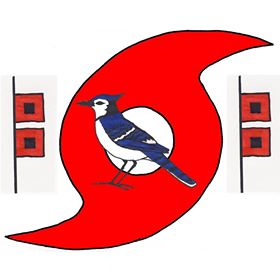Tropical Cyclone Ula is bringing wind and rain to islands in northern Tonga. At 10:00 p.m. EST on Friday the center of Tropical Cyclone Ula was located at latitude 18.3°N and longitude 175.6°W which put it about 100 miles (160 km) north-northwest of Tongatapu, Tonga. Ula was moving toward the west-southwest at 12 m.p.h. (19 km/h). The maximum sustained wind speed was 115 m.p.h. (150 km/h) and there were wind gusts to 135 m.p.h. (215 km/h). The minimum surface pressure was 959 mb.
Lupepau’u airport on Vava’u reported maximum sustained winds of 65 m.p.h. (105 km/h) and wind gusts to 100 m.p.h. (160 km/h) when the center Tropical Cyclone Ula passed north of it. Ula also brought strong winds and heavy rain to Tafahi, Fonaulei and Toku in northern Tonga.
Tropical Cyclone Ula intensified quickly during the past few hours and a pinhole eye is visible on conventional satellite images. The eye is surrounded by a tight ring of strong thunderstorms. Several spiral bands are rotating around the center of Ula. One of the primary rainbands may be wrapping around the pinhole eye and concentric eyewalls may be developing. Thunderstorms in the core of Tropical Cyclone Ula are generating upper level divergence that is pumping out mass in all directions.
Tropical Cyclone Ula is in an environment favorable for intensification. Ula is moving over water where the Sea Surface Temperature (SST) is near 28°C. The upper level winds are relatively light and there is not much vertical wind shear. Ula could intensify further during the next few hours, although an eyewall replacement cycle could cause fluctuations in intensity. Tropical Cyclone Ula could move into an area where the upper level winds are stronger in 24 to 48 hours. Ula will also move over cooler SSTs in several days. The combination of more wind shear and cooler SSTs will weaken the tropical cyclone.
A subtropical ridge is steering Tropical Cyclone Ula toward the west-southwest and that general motion is expected to continue for another day or so. After that time Ula will reach the western end of the ridge and turn more toward the south. On its expected track Tropical Cyclone Ula could be approaching the southeastern islands of Fiji in about 24 hours.
